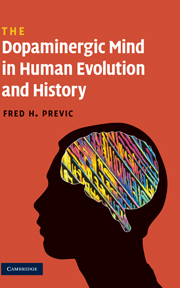Book contents
1 - What makes humans special?
Published online by Cambridge University Press: 27 July 2009
Summary
Between two and three million years ago, a small creature hardly larger than a pygmy chimpanzee but with a much larger brain relative to its body weight began a remarkable journey. The initial part of that journey didn't involve much by today's standards, merely the ability to scavenge and possibly chase-hunt the creatures of the sub-Saharan African savannahs, to make some rather modest stone-flaked tools for that purpose, and eventually to migrate over the African and possibly the Eurasian land mass. This little creature, arguably our first unequivocally human ancestor, was known as Homo habilis (“domestic” man). How the modest abilities of this first human emerged and were transformed into the prodigious human achievements and civilization that exist today is arguably the most important scientific mystery of all. The solution to this mystery will not only help to explain where and why we evolved as we did – it will additionally shed light on how we may continue to evolve in the future.
But, first, some basic questions must be asked, including: what is human nature and what is the basis of it? How much of human nature is related to our genes? Is human nature related to the size and shape or lateralization of our brain? How did human nature evolve? Although our hairless skin and elongated body make our appearance quite different from our primate cousins, it is not our anatomy but our unique brain and behavior that most people consider special.
- Type
- Chapter
- Information
- The Dopaminergic Mind in Human Evolution and History , pp. 1 - 18Publisher: Cambridge University PressPrint publication year: 2009



